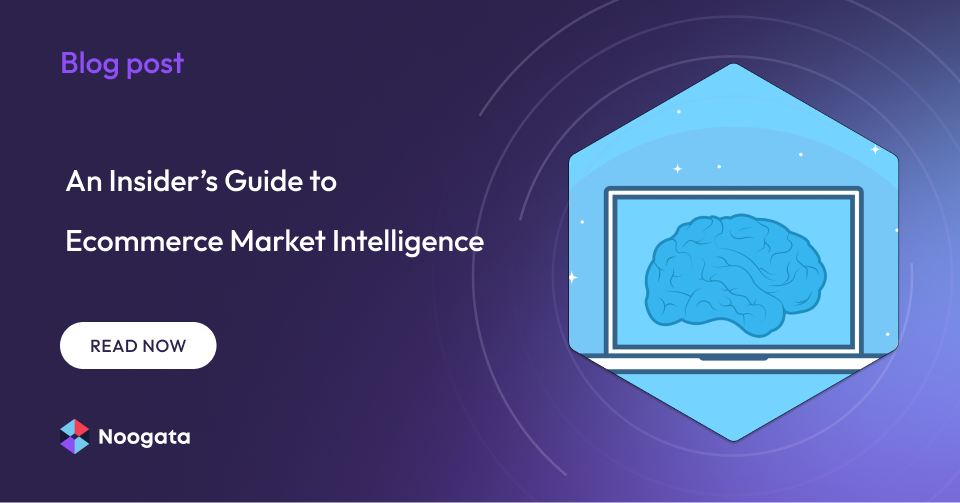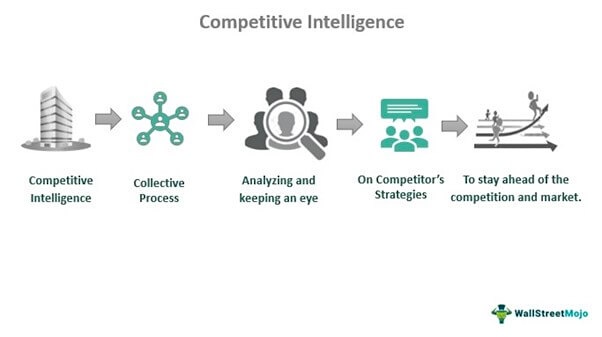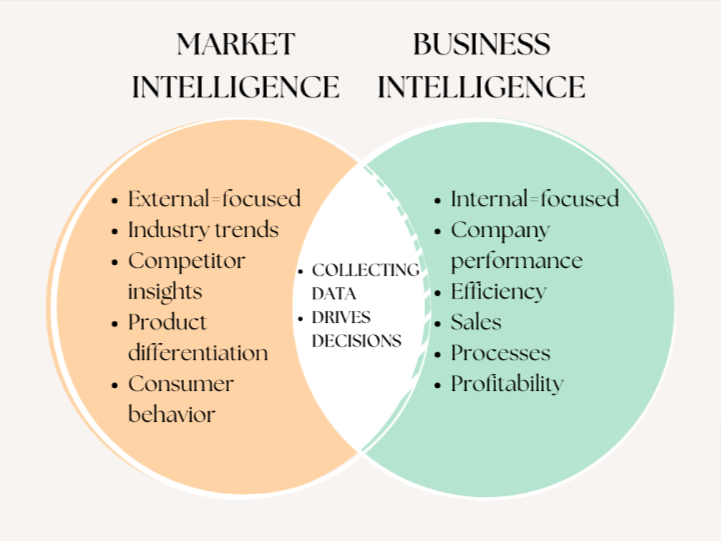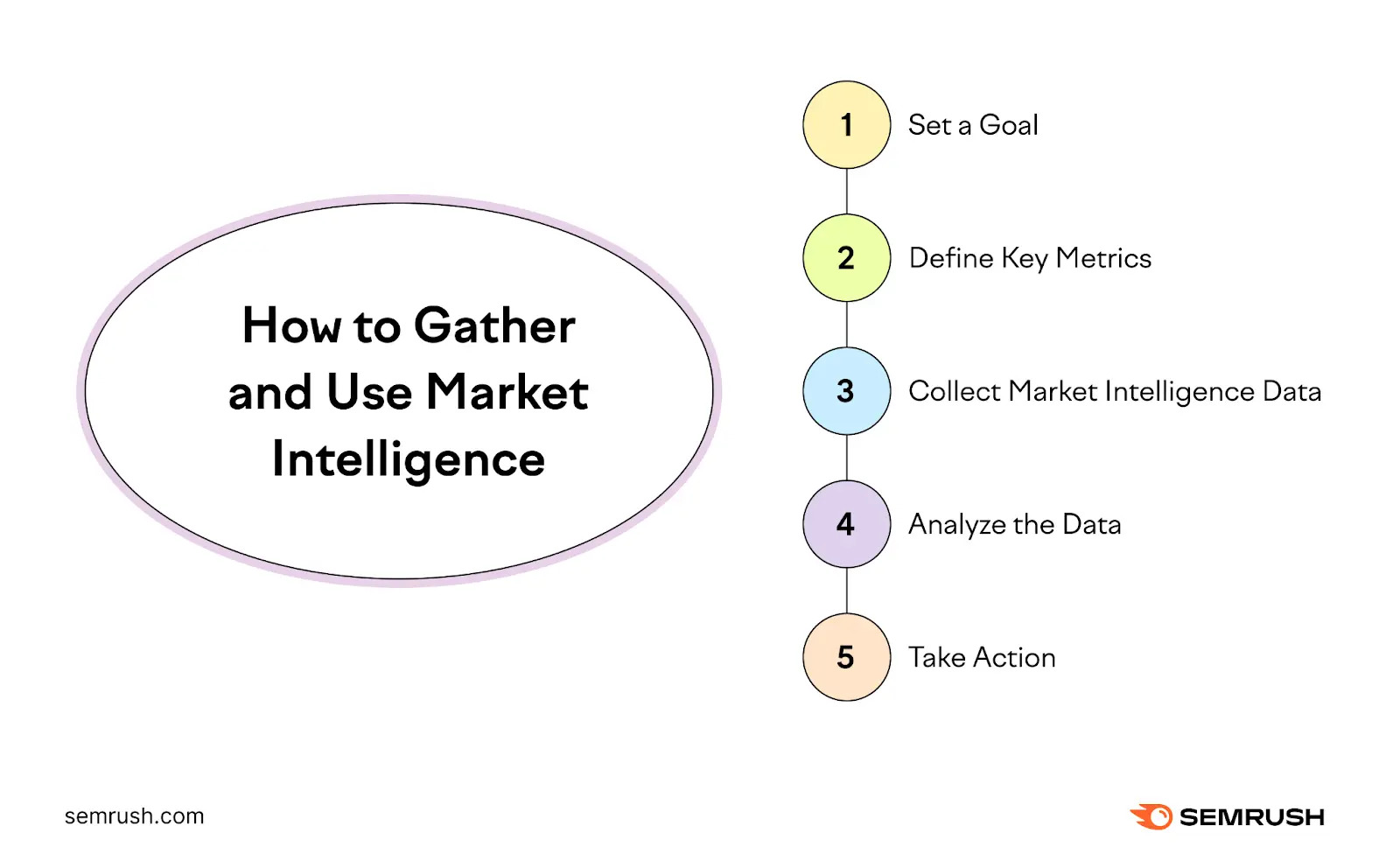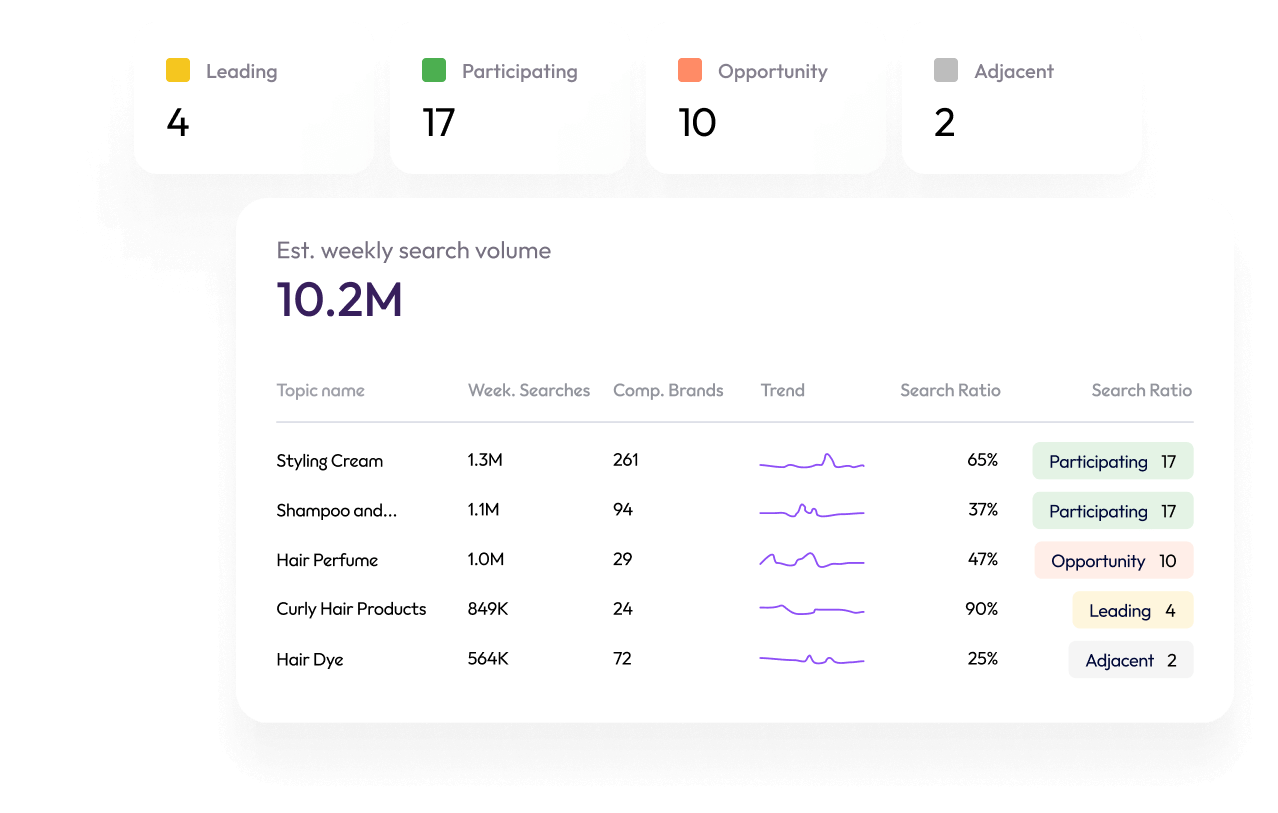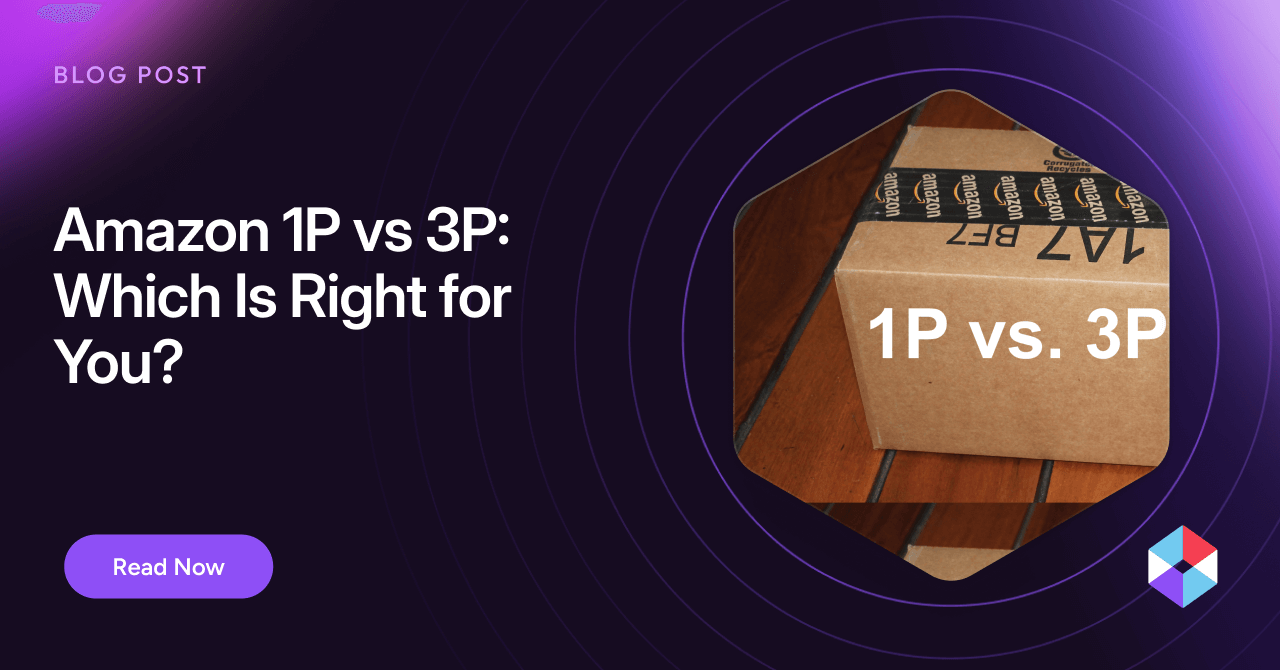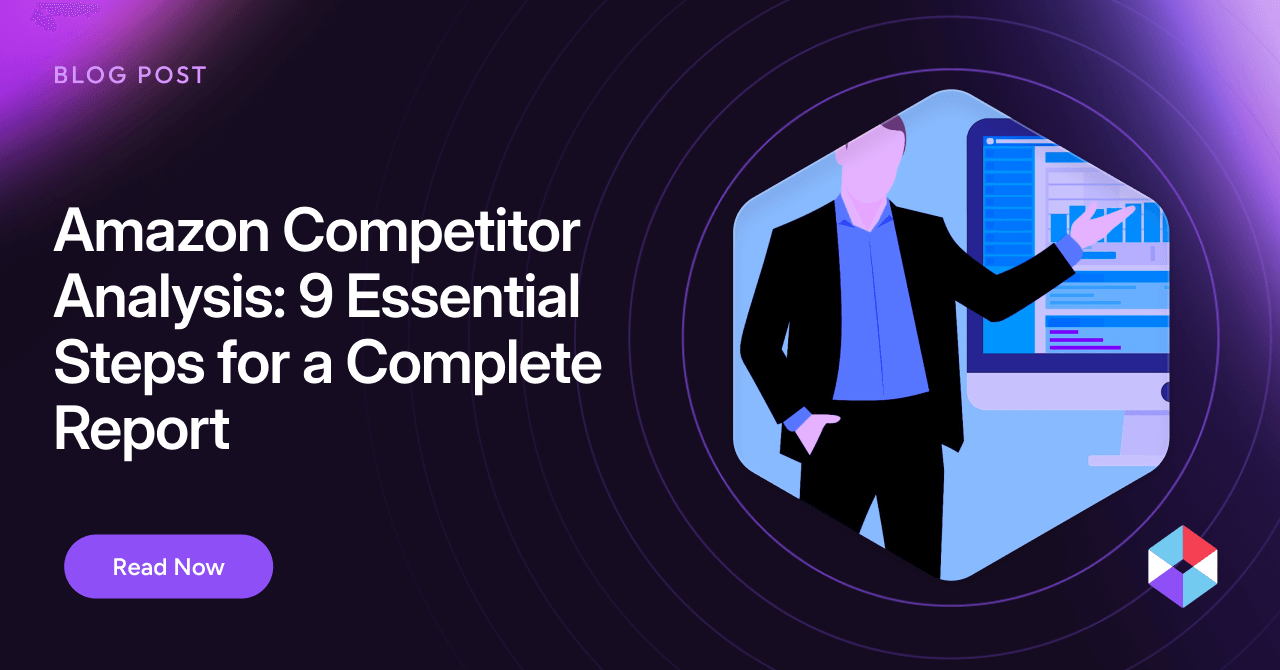Picture this: you’ve just launched a new online store selling trendy phone cases. You’ve invested heavily in a sleek design, unique products, and eye-catching marketing. But sales are trickling in. Customers are abandoning their carts, your ad campaigns aren’t converting, and the competition seems miles ahead. What went wrong?
The answer could lie in missed market intelligence. Were you aware of shifting mobile shopping trends? Did you analyze what features your competitors were offering? Did you understand your target audience’s pain points? If not, you may have built your store on assumptions rather than solid data.
In 2024, market trends are changing faster and more decisively than ever. Consider the trajectory of groceries as an eCommerce category. Ranked near the bottom in the year before the pandemic, it’s now on track to become the top category within two years, comprising 19% of eCommerce market share. Who could have predicted this? A savvy business with the latest market intelligence, that’s who.
In a highly competitive eCommerce environment, market intelligence can tell you what consumers want and where your industry is headed so you can stay ahead of the pack. With the recent introduction of powerful AI eCommerce tools, having detailed, up-to-date market intelligence is more available to you than ever.
Here’s the inside scoop on how it will help your eCommerce business grow.
Ecommerce Market Intelligence: What is it, and why do you need it?
Market intelligence is the practice of gathering and analyzing data about the market you’re competing in and using what you’ve learned to make smarter business decisions. The insights you generate can tell you what your customers want and how to sell it to them most effectively. Your customers, competitors, and industry are all valuable sources of market intelligence.
Market intelligence is essential for launching a new business and growing an established one. It enables you to predict trends more accurately and choose data-driven strategies instead of using out-of-date formulas and guesswork.
The 4 Types of Ecommerce Market Intelligence
1. Competitive Intelligence
Competitive intelligence involves (legally and ethically) finding out as much as possible about your competitors and their activities. It focuses on pricing strategies, product development, target audience demographics, and market positioning. Platforms specializing in competitive intelligence can scour public websites and postings to collect and contextualize data to reveal accurate information and valuable insights.
2. Product Intelligence
Product intelligence concerns how products are developed, manufactured, distributed, displayed, and packaged. The purpose of product intelligence is to gather data that can help you improve the quality and value of your products, making them more likely to outsell your competitors’ offerings and earn the loyalty of your customers.
3. Market Understanding
Market understanding keeps you informed about the various marketplaces in which you sell your products, with an emphasis on audience demographics and top-selling competitors. This data can help you adapt your sales and marketing tactics to each marketplace, optimizing your performance and maximizing your growth potential.
4. Customer Understanding
Customer understanding is how you get to know your target audience: their demographics, preferences and pain points, behaviors, feelings about your brand, customer service experiences, and, most importantly, the factors that motivate them to purchase.
In addition to helping you close sales, this intelligence can improve satisfaction, trust, and loyalty, boosting customer retention. It can be collected using survey tools, website analytics, and social media monitoring techniques.
Each of these types of intelligence feeds and supports the others. A well-rounded approach to market intelligence will give you the most accurate and detailed overview.
Benefits of Ecommerce Market Intelligence
Here are the best reasons to engage in eCommerce market intelligence:
- Faster, smarter decision-making – Market intelligence gives you accurate, relevant data to base your decisions on, reducing time spent brainstorming and weighing uncertain options.
- Accurate forecasting – By identifying trends, gauging consumer sentiment, and anticipating your competitors’ actions, you can make detailed and reliable predictions that help you optimize your long-term strategies.
- Deeper customer engagement – If you know what your customers want and think, you can communicate with them more effectively and provide marketing content that resonates. This builds stronger relationships and leads to higher conversion rates and repeat purchases.
- Outflanking your competitors – When you have a solid understanding of your competitors, you can beat them on price, counter their marketing messages, and identify opportunities to offer better products and features to your customers.
- Higher earnings – All these benefits add up to increased ROI on your sales and marketing activities. Campaigns informed by market intelligence are more likely to succeed at generating sales and growing your revenue.
Ecommerce Market Intelligence: How does it work?
Ecommerce market intelligence starts with gathering data. Depending on the type of intelligence you’re looking for, you might look for it in customer feedback, user behavior, competitors’ actions, product information, third-party reports about your industry, and many other potential sources.
There are tools for every type of market intelligence that can help you collect, organize, and analyze the data. For customer feedback, you might use automated surveys. Social media data and listening tools can be very helpful for consumer sentiment and emerging trends. Tools like Noogata can uncover information about product selection, pricing, marketing tactics, and keyword targeting for competitive intelligence.
Once the data has been collected, the right software can generate analytics, reports, and visualizations to help you make sense of the information and transform it into actionable insights.
The Questions Ecommerce Market Intelligence Answers
Market intelligence can address some of the most pertinent questions eCommerce sellers have about their business and sales environment, such as:
- What are our target audience’s prevailing demographics, psychographics, and behaviors?
- How much competition exists in this market?
- What are the advantages our competitors have, and what are their vulnerabilities?
- How should we price our products to stay competitive but maintain adequate profit margins?
- What are the most important value drivers in this market?
- Are we meeting industry benchmarks?
- What new products, consumer trends, or economic forecasts should we anticipate?
5 Winning Strategies Using Ecommerce Market Intelligence
Now that you know what it is and how it works, it’s time to answer the most essential question for insiders: How can I use eCommerce market intelligence in my business? Here are five winning strategies that will help you outperform the competition:
1. Get to Know the Current Ecommerce Landscape
A solid grasp of the big-picture conditions of the eCommerce landscape is essential to a winning strategy. Trends and expectations are constantly changing regarding marketing success, shipping options, payment methods, the devices and platforms consumers prefer, and even the product categories consumers are willing to shop for online.
Consider the shift from brand websites on desktop computers to social media platforms and marketplaces like Amazon on mobile devices. You’ll be left behind if you’re not in tune with what’s happening in the landscape.
2. Spot Trends and Capitalizing on Opportunities
Consumer sentiment and innovations within your industry can spawn fast-growing trends. However, if you’re too slow to realize what’s developing and seize the opportunity, more agile competitors will snap up the market share you could have had.
Keeping tabs on what consumers are talking about and what new technologies are in the works will help you catch the leading edge of hot trends instead of lagging. Market intelligence can also direct your attention to under-served niche markets and audience segments.
3. Keep an Eye on the Competition
You’re at a major disadvantage if you’re unaware of your competitors’ activities. Using specialized tools like Noogata to study your competitors’ sales and marketing tactics can help refine your messaging and create a unique position within the market.
Measuring your performance against theirs can give you a realistic view of your business’s health and growth potential. Monitoring their prices and product listings allows you to make better offers that can lure their customers away.
4. Better Decision-Making through Data Analysis
The primary function of all this intelligence-gathering is to enable you to make smarter, faster, and more informed business decisions. It can show you opportunities ripe for the taking, areas where your performance is not up to par, and insights into your next steps.
Analytics tools can help you present your findings to others in ways that clarify the key takeaways and highlight the optimal path forward. AI-powered eCommerce analytics software will even provide you with the right actions to take next.
5. Drive Sales with Pricing and Promotional Tactics
Finally, there’s the ultimate goal served by leveraging market intelligence: increasing your sales revenue. Pricing and promotions are two areas where insights can be applied immediately for fast, measurable results. Benchmarking your product prices against competitors can help you set an ideal range. Customer intelligence will tell you how much various segments are willing to pay.
Armed with this information, you can adjust your prices within that range to take advantage of trends and shifts in demand and offer special promotions to the customers most likely to be persuaded by them.
Ecommerce Market Intelligence: Knowledge is Power
Knowledge is power, and in eCommerce, the knowledge you can obtain through market intelligence can empower you to blow past the competition and convert your target audience into loyal customers.
Leaning into a data-driven approach enhanced by the latest AI technology is the most effective way to navigate the ever-changing ecommerce landscape. Noogata has the AI-powered competitive intelligence and market research tools you need to dominate the landscape on Amazon and other marketplaces, with actionable insights available for your entire eCommerce team.
Request a demo today to see how Noogata can provide your eCommerce business with a competitive edge.
